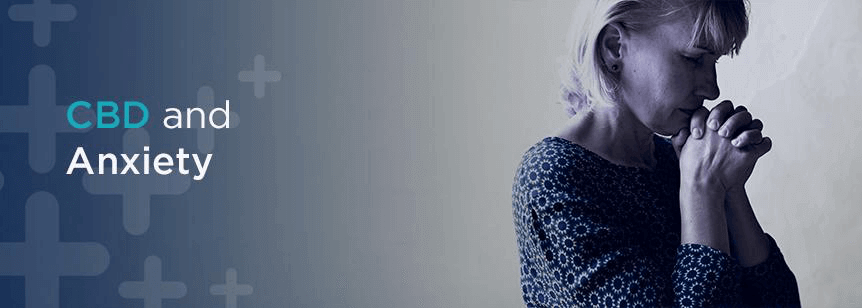
Anxiety-related disorders are very common and affect a huge segment of the population. It is estimated that nearly one in three US adults have experienced an anxiety disorder at one time or another during their lifetime. While some anxiety can be beneficial, for example helping people to recognize and avoid potential threats to their wellbeing, excessive anxiety can interfere with daily activities such as job performance, school work, and relationships.
Treatment for anxiety disorders generally includes therapy and/or pharmaceuticals, such as selective serotonin reuptake inhibitors (SSRIs) like Prozac and Zoloft. While these drugs can be effective, some individuals do not benefit from them, or experience side effects. As an alternative, there has been great interest in using marijuana and CBD to treat anxiety, especially as state laws continue to relax for both medicinal and recreational use.
Unfortunately, scientific data remains scarce for cannabis in general, and there haven’t been any studies that have directly compared marijuana with CBD for treating anxiety. However, there have been some recent reports on anxiety and cannabis, as well as anecdotal evidence that both may be effective for at least some people.
Some research has shown that THC in cannabis can be more anxiety-inducing, while CBD may be more anxiety-reducing. A reduction of anxiety-type symptoms has been reported by cannabis users who have post traumatic stress disorder (PTSD) or chronic pain. In addition, THC has been shown to increase anxiety in experimental studies using animals, while CBD appeared to have the opposite effect.
A study conducted last year found that cannabis use significantly reduced ratings of depression, anxiety, and stress. The researchers used the medical cannabis app Strainprint, which allows users to track changes in the severity of their symptoms. This fairly large study analyzed 11,953 tracked sessions, including 3,151 for depression, 5,085 for anxiety, and 3,717 for stress.
Users depression symptoms were reduced by 50%, and anxiety and stress by 58%. Two puffs were enough to reduce ratings of depression and anxiety. The researchers also looked at THC/CBD ratios in the cannabis that was smoked. Low THC/high CBD cannabis seemed to be the ratio for beating back depression, while high THC/high CBD cannabis seemed to be the best for busting stress. As for anxiety, the THC/CBD ratio didn’t seem to matter. Neither THC nor CBD content predicted changes in anxiety ratings in any significant way. At least based on these study results, smoking marijuana curbs anxiety symptoms, and the THC/CBD ratio didn’t matter.
But cannabis remains a paradox, as it escalates anxiety in some people while reducing it in others. Overall, there is just not enough research, especially on the doses and strains that may be the most beneficial.
As for CBD oil, there is some early evidence that it could be helpful for anxiety. Since it lacks THC, there’s no high and no THC/CBD ratio to worry about. There is some evidence suggesting that CBD could be helpful in the treatment of anxiety, such as a review of published scientific literature, conducted in 2015, that suggested CBD could be effective in social anxiety disorder, generalized anxiety disorder, obsessive-compulsive disorder, panic disorder, and PTSD.
More recently, researchers looked at CBD and its effect on anxiety and sleep. They reviewed medical charts of 103 patients (72 were included in the final analysis) who had been treated at a psychiatric clinic and received CBD for anxiety and sleep complaints in addition to their standard treatment. They found anxiety scores decreased within the first month in nearly 80% of patients, with effects holding steady during the full three-month study. CBD was also well tolerated by all but three patients.
While there is no final conclusion on whether cannabis or CBD is better for anxiety, the available information seems to suggest that CBD has more general and reliable anti-anxiety effects.
Due to the scarcity of information, and especially any real data that compares CBD with marijuana, speaking with a marijuana doctor may be the best bet for anyone interested in using this option for anxiety.
Roxanne Nelson is a registered nurse who has written for a wide range of publications for healthcare professionals and consumers, including Medscape, The Lancet, Prevention, Scientific American, WebMD, American Journal of Nursing, Frontline, National Geographic, Hematology Adviser, American Journal of Medical Genetics and the Washington Post, among others.
No Information on MarijuanaDoctors.Com should be used to diagnose, treat, prevent or cure any disease or condition. You can view our Full Disclaimer here.